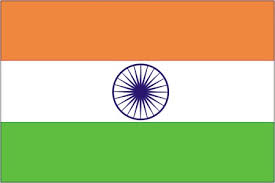OPEC
The Organization of Petroleum Exporting Countries (OPEC) comprises 11 oil-exporting developing countries. It was founded in Baghdad, Iraq, in September 1960, to unify and coordinate members’ petroleum policies. OPEC’s national oil ministers meet regularly to discuss oil prices and, since 1982, to set crude oil production quotas. OPEC Present Members include Iran, Iraq, Kuwait, Saudi Arabia, Venezuela, Qatar, Indonesia, Libya, UAE, Algeria and Nigeria.
Presently, OPEC’s 11 members, collectively produce nearly 30 million barrels per day (One barrel equals 42 US gallons, or 159 litres) – 40% of the world’s crude oil output (75 million barrels per day), and possess more than 3/4th (nearly 80%) of the world’s total proven crude oil reserves (estimated at more than one trillion barrels). Saudi Arabia, with over 32% share of OPEC production is the key OPEC member. OPEC members had total oil export revenue of USD 240 billion in 2003 (up 23% over 2002).
OPEC was formed in 1960 in response to lowering of oil prices by oil companies; which was followed by nationalizing of oil sectors in several exporting countries. The first moves towards the formation of OPEC occurred in 1949 when Venezuela, approached what would later be the other four founding members, to explore avenues for regular and closer cooperation.
On 14 September 1960, OPEC’s founder members – Iran, Iraq, Kuwait, Saudi Arabia, and Venezuela – met in Baghdad and OPEC was born. It was this First Conference in Baghdad, Iraq in 1960, which established OPEC as a permanent intergovernmental organization. Between 1960 and 1975, the organization expanded to include Qatar (1961), Indonesia (1962), Libya (1962), the United Arab Emirates (1967), Algeria (1969), and Nigeria (1971). Ecuador and Gabon were members of OPEC, but Ecuador withdrew in December 1992, and Gabon followed suit in January 1995. Although Iraq remains a member of OPEC, Iraqi production has not been a part of any OPEC quota agreements since March 1998. The Second Conference decided to base the OPEC Secretariat in Geneva, Switzerland, where the first meeting of the OPEC Board of Governors convened in May 1961. In April 1965, the OPEC Conference decided to move the Headquarters to Vienna, Austria.
In June 1968, a ‘Declaratory Statement of Petroleum Policy in Member Countries’ was adopted. The Statement called on Member Countries to undertake, as far as feasible, direct exploration for development of hydrocarbon resources; to seek participation in the equity of existing concessions, and progressive and accelerated relinquishment of acreage of present contract areas; to establish conservation rules to be followed by operating oil companies; and to determine posted or tax reference prices by the Government so as to prevent deterioration in the relationship of those prices against the prices of manufactured goods traded internationally.
The First Conference of the Sovereigns and Heads of State of the OPEC Member Countries in March 1975, in Algiers, adopted ‘Solemn Declaration’ and added new policy guidelines in the light of the changing pattern of the relationship between producer and consumer nations. The Second Summit of OPEC Heads of State and Government was held in Caracas, Venezuela, in 2000.
The OPEC Statute stipulates that ‘any country with a substantial net export of crude petroleum, which has fundamentally similar interests to those of Member Countries, may become a Full Member of the Organization, if accepted by a majority of three-fourths of Full Members, including the concurring votes of all Founder Members.’
The OPEC Statute further distinguishes between three categories of Membership: Founder Member, Full Member and Associate Member. Founder Members of the Organization are those countries which were represented at the OPEC First Conference, held in Baghdad, and which signed the original agreement establishing OPEC. Full Members are the Founder Members, plus those countries whose applications for Membership have been accepted by the Conference. An Associate Member is a country, which does not qualify for full membership, but which is nevertheless admitted under such special conditions as may be prescribed by the Conference.
OPEC’s Conference — of Petroleum Ministers and their Delegations — is the supreme authority of the Organization; it holds regular twice-yearly Meetings to formulate OPEC’s policy and determine the ways and means of its implementation, including the Organization’s pricing and production agreements. Extraordinary Meetings of the Conference are held, as and when considered necessary. The Secretariat, which is headed by the Secretary General, carries out the executive functions of the Organization, under the direction of the OPEC Board of Governors. The Secretariat has a Research Division, which is divided into three Departments — Energy Studies, Petroleum Market Analysis and Data Services, including an extensive Library. The public face of OPEC is managed by the Public Relations and Information Department, which includes OPEC’s specialised News Agency. There is also an Administration and Human Resources Department.
The Organization of Petroleum Exporting Countries is headquartered in Vienna.
Helferstorferstrasse 17, A-1010 Vienna
Tel: +43 - 1 21112 - 3302
Website: www.opec.org ![]()
India and OPEC
The first India-OPEC dialogue was held in New Delhi on 15 December 2015 and was co-chaired by the Secretary General of OPEC. Mr. Abdalla Salem El-Badri and Minister of State for Petroleum and Natural Gas, Shri Dharmendra Pradhan. H.E Mr. Mohammad Sanusi Barkindo, the OPEC Secretary General, who took over in 2016 visited India in December 2016 to participate in the Petrotech Conference held in New Delhi. During his visit, Mr. Barkindo also met with MOS Pradhan. The Second High-Level Meeting of the OPEC-India Energy Dialogue was held on 22 May 2017 in Vienna.
The regularity of interaction between both sides was commended and Mr. Barkindo thanked Shri Pradhan for his active participation and valuable contribution to the seventh International OPEC Seminar held in June 2018. The two sides exchanged views on the emerging global crude markets and deliberated on India’s concerns vis-à-vis oil purchase from OPEC member countries. Shri Pradhan gave Indian perspective on developments in the global oil market. He reiterated that reasonable and responsible oil prices would be beneficial in long term, for both oil producing and oil importing countries. The two sides agreed that such annual dialogue between India and OPEC is in mutual interest and it should be continued in future.
The third High-level Meeting of the OPEC-India Energy Dialogue was held on 17 October 2018 in New Delhi, India. The Meeting was co-chaired by Shri Dharmendra Pradhan, India’s Minister of Petroleum and Natural Gas, and the OPEC Secretary General, Mr. Mohammad Sanusi Barkindo. Both parties reiterated the continued importance of the OPEC-India Energy Dialogue as an indispensable forum for fostering good relations, facilitating knowledge exchange and pooling technical expertise.
http://petroleum.nic.in/ ![]()
http://petroleum.nic.in/ic/about-international-cooperation ![]()















